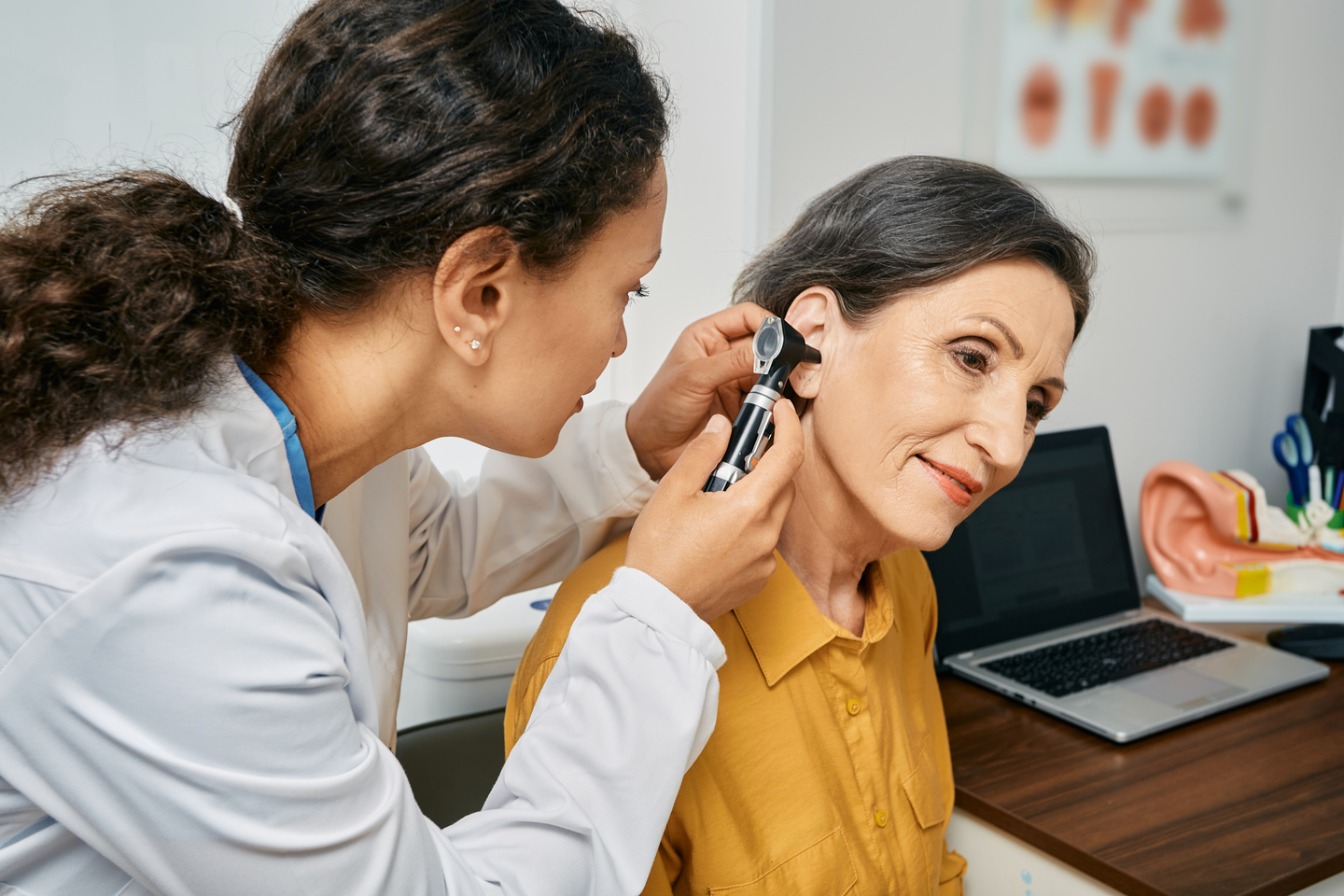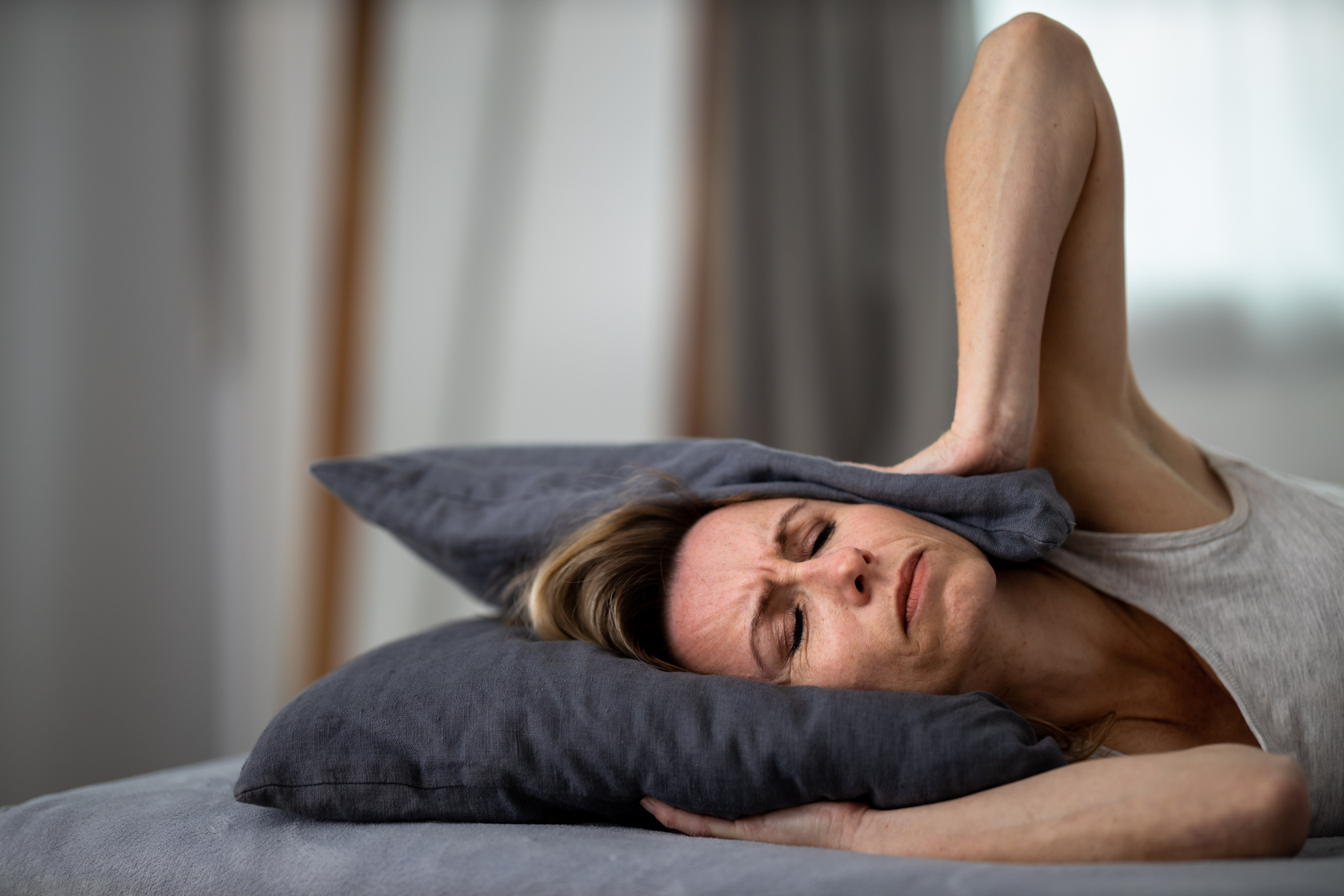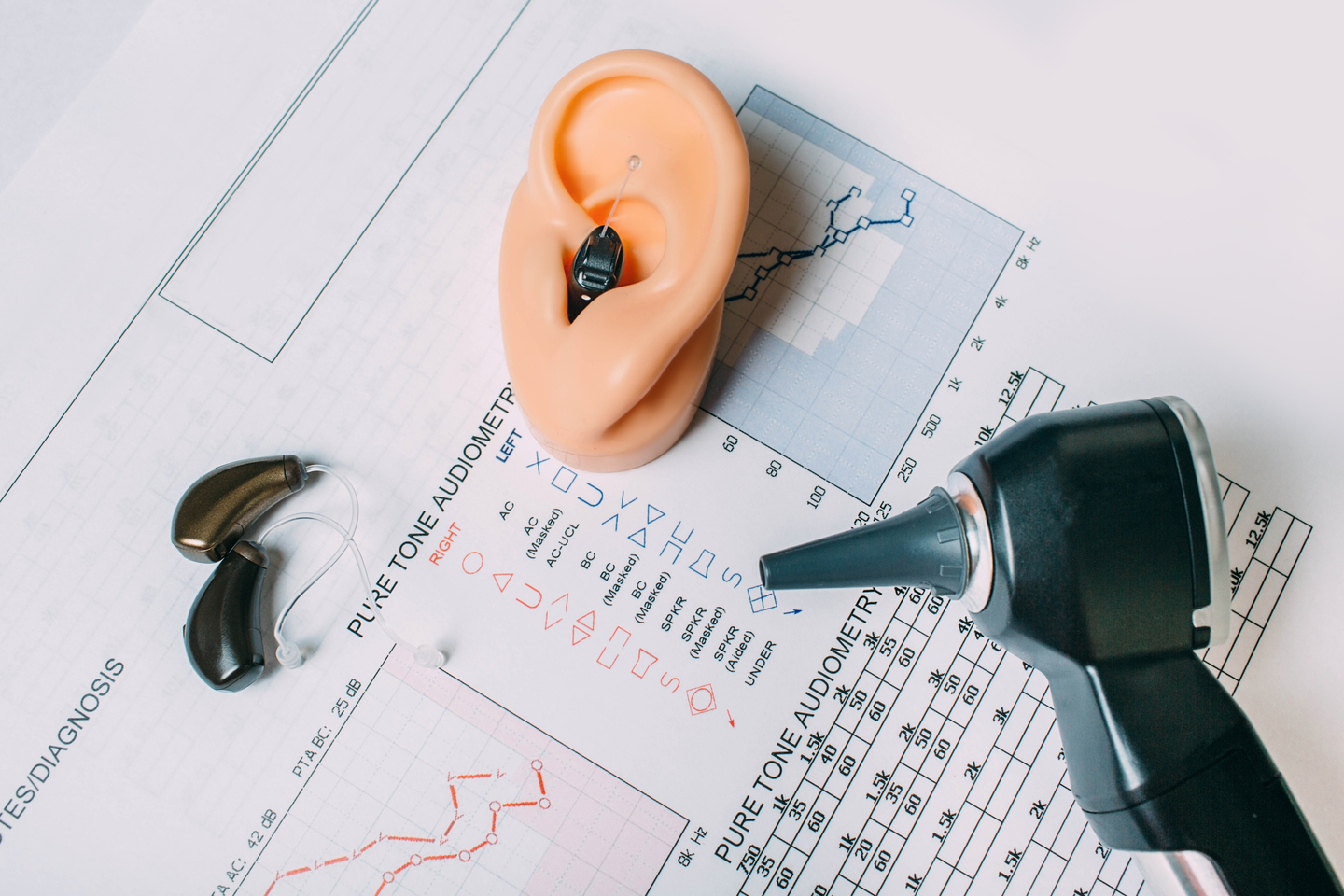What is Meniere’s Disease?
Exploring Meniere’s Disease: Causes and Symptoms
The ear can be divided into three regions: The outer ear, the middle ear, and the inner ear. The inner ear houses a fluid, known as Endolymph, that is responsible for aiding in hearing and balance. Meniere’s disease is thought to be a disease of excess fluid within the inner ear which can lead to symptoms of dizziness (Vertigo) and hearing loss. However, what causes Meniere’s disease to develop is still unknown.
What is Meniere’s Disease?
Meniere’s disease is a relatively common pathology seen in the ear specialist’s office. Most of the time, Meniere’s disease can be diagnosed through a conversation and examination between you and the otologist.
There are 4 symptoms that are usually present with Meniere’s disease:
- Distinct episodes of spinning or rocking, lasting minutes to hours at a time
- Ringing or buzzing in one or both ears
- Sensation of pressure or fullness in one or both ears
- Hearing loss in one or both ears
How is Meniere’s Disease diagnosed?
Meniere’s Disease can be diagnosed by an experienced ENT, or fellowship trained otologist (ear surgeon). The diagnosis can be often missed, and commonly patients may be seen by several specialists before the diagnosis is confirmed.
Your ear specialist will need to gain a thorough understanding of the symptoms occurring and the duration of the symptoms. The otologist will also perform several exams in the clinic to confirm the diagnosis which include a hearing and balance assessment, as well as testing vestibular function and inner ear stimulation.
Are there any other special tests that can diagnose Meniere’s disease?
In some cases, such as when the disease is in its early stages, several other tests may be needed to confirm the diagnosis. These include:
- Comprehensive Audiogram
- Videonystagmography (VNG)
- Electrocochleography (ECOG)
- Vestibular Evoked Myogenic Potential (VEMP)
Your otologist can explain in great detail what each test means, and whether one of these tests needs to be ordered to better evaluate and diagnose your specific case.
What are the treatments for Meniere’s Disease?
Unfortunately, there is no cure for Meniere’s disease. However, due to the expansive research that has been done there are several treatments which can be utilized to help treat and manage the disease. Due to this, the treatment options for each patient should vary case by case as more individualized treatments are needed for the best results. It is important to talk to an experienced ENT or ear surgeon to best address the management of this disease.
Is there a cure for Meniere’s Disease?
Meniere’s disease can not be cured, but it can definitely be managed and suppressed with the help of an otologist. The good news is that Meniere’s disease has been studied by doctors, surgeons, and researchers for over 100 years, and therefore many different therapies have been discovered over the years. Every case of Meniere’s disease is a little different from another, and therefore it is important for your otologist to fully evaluate you and decide which treatment will work best for you.
How does Meniere’s disease develop?
Meniere’s disease is believed to be caused by a physiologic dysfunction in the inner ear. The inner ear is located inside the skull. It is covered in thick bone, but the interior is hollow and filled with fluid. People with Meniere’s have an excess build up of this fluid, and when the pressure from the fluid becomes too high, it leads to a violent episode of dizziness, ringing, and even hearing loss. When the pressure subsides, so do the symptoms of Meniere’s disease. Meniere’s disease is like glaucoma of the inner ear. Just like glaucoma, which is caused by increased pressure in the eye, Meniere’s disease is caused by increased pressure in the inner ear.
Are there any specific causative agents for Meniere’s Disease?
Episodes of Meniere’s disease can be induced by a high salt diet, caffeine, sodas, alcohol, certain foods, allergies, infections, and even stress. This is why a simple modification in the patient’s lifestyle and daily habits is usually the first step in trying to keep Meniere’s under control.
What is the natural progression of Meniere’s disease in terms of hearing loss and vertigo?
The frequency of attacks is unpredictable. Thousands of cases of Meniere’s disease have been studied worldwide over the last 100 years. The natural history of Meniere’s indicates that 50% of patients who are untreated will be free of vertigo episodes only after about 20 years. Meniere’s disease is progressive and can lead to a profound hearing loss in the affected ear. 15% of patients can develop Ménieres Disease in the opposite ear. For all these reasons, it is important to see an otologist for the proper diagnosis, treatment, and management of symptoms before they become too extreme and completely take over your daily life. It is important to know that with proper treatment, your symptoms can be kept under good control and you can go back to living your normal life.
What are some possible medical treatments for Meniere’s Disease?
Many patients who are first diagnosed with dizziness are given medications like Dramamine or Meclizine. Compazine and Zofran may help control nausea and vomiting.
However, Meniere’s episodes of dizziness are often very severe and do not respond well to these drugs. There are other prescription drugs that your otologist can prescribe which work much better for controlling the acute attacks of Meniere’s vertigo.
Stress sometimes can precipitate an attack of Ménieres Disease. Physical exercise can be helpful in reducing stress. Your otologist may decide that a special rehab course, known as vestibular rehabilitation therapy, may be beneficial for you to regain your balance for everyday activities. Vestibular therapy focuses on teaching you specific head, eye, and body exercises that target the inner ear and help strengthen this system over several weeks. This is similar to how going to the gym helps strengthen muscles in your body.
A low salt diet will usually be recommended to help prevent a future episode. Avoidance of substances containing caffeine may be advised. If the history and diagnostic blood or skin tests indicate an inhalant allergy, desensitization therapy may be recommended. Food allergies are sometimes found in patients with Ménieres Disease and should be diagnosed and treated.
In some cases, taking a corticosteroid like prednisone for several weeks may improve hearing and inner ear function.
Are there any procedures or surgeries that can be done for Meniere’s Disease?
When lifestyle and diet changes are not enough to keep your symptoms at bay, your doctor may prescribe a diuretic such as Dyazide or Diamox. The diuretic works by reducing water retention in your body, and in effect, it also reduces the fluid pressure in the inner ear. The medication is effective for many patients and can be used safely for long term management of symptoms.
When lifestyle changes, diet, and medication fail to control the disease, your otologist may choose one of several minimally invasive options as the next step in treatment. Here is a list of possible treatments that can be offered by a fellowship trained otologist (in order from least invasive to more invasive):
- Intra-tympanic corticosteroid injections
- MicroWick Procedure
- Intra-tympanic Gentamicin injection
- Endolymphatic sac decompression
- Labyrinthectomy
- Microsurgical Vestibular Neurectomy
How do I know which procedure is right for me?
It is important to talk to your otologist in detail before choosing any of the above treatments. Most treatments can be done in the office as an outpatient procedure. Based on your history and symptoms, such as level of hearing loss, degree of incapacity, and overall health status, the otologist will choose the treatment that will have the least amount of risk and the most amount of benefit for you.
The most important thing to know is that you’re not alone, and that with patience we will find the appropriate treatment for you to get back on your feet and gain back control of your normal life.








